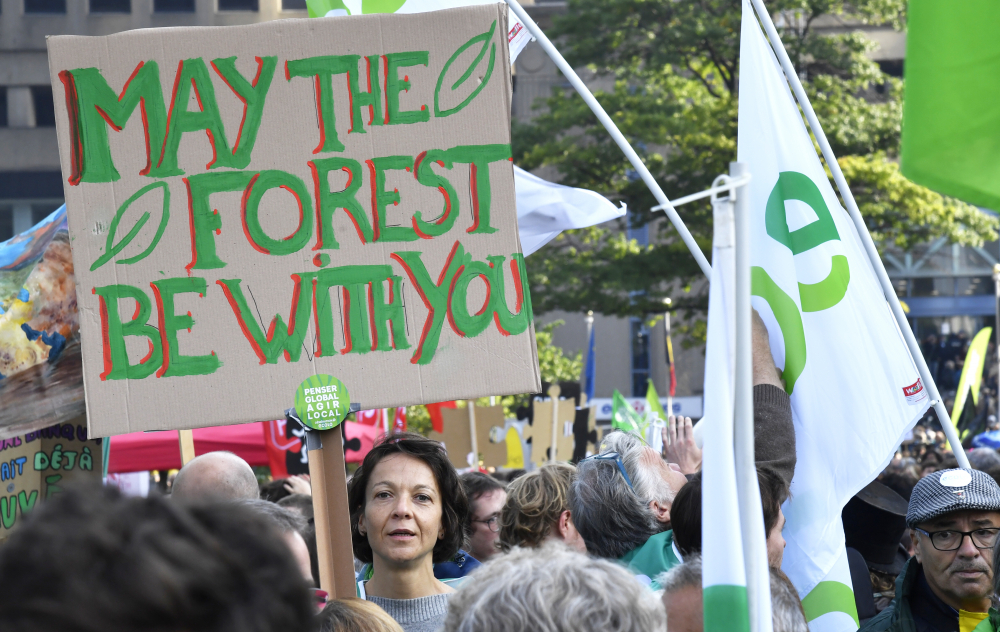Angus King and Susan Collins seek new State Department job to elevate issues that may help Maine in a warming world
climate change
Beef industry tries to erase its emissions with fuzzy methane math
In the U.S., ranches, farms and feedyards generate about 243 million tons of heat-trapping gases annually – more than five times as much as an equivalent amount of pork or chicken.
Biden focuses on climate and families in trimmed $2 trillion plan
The president met privately into the evening with centrist and progressive lawmakers in separate groups as Democrats appeared ready to abandon a $3.5 trillion package for a smaller, more workable proposal that can win passage.
Thousands march in Brussels to demand tougher climate action
Environmentalists worry that the upcoming U.N. climate change summit will produce policies that don’t do enough to slash carbon emissions and slow the warming of the planet.
Google cracks down on climate change denial by targeting ads
The company says the new policy will also apply to YouTube, which last week announced a sweeping crackdown of vaccine misinformation.
Physics Nobel rewards work finding order in disorder, such as with climate change
The prize goes to 2 fields of study that are opposite in many ways though they share the goal of making sense of what seems random and chaotic so that it can be predicted.
Maine Voices: Mainers must meet climate change challenges head on
It’s time to increase our offshore wind investments; upgrade EV charging infrastructure, and make public transit accessible – and electric.
Commentary: Owning up to our part in the plight of the North Atlantic right whale
While the debate continues over how many right whale deaths are caused by lobster gear, the scientific evidence for the toll taken by climate-related ocean change is mounting.
Owners of Maine’s carbon-sponge forests asked to do more to blunt climate change
Two separate efforts are underway to maximize carbon absorption, one for smaller landowners and the other for forest industry heavyweights.
Markets that pay woodland owners to store carbon are complex, controversial
Maine, the nation’s most heavily forested state, has been an early participant in so-called carbon offset markets.









